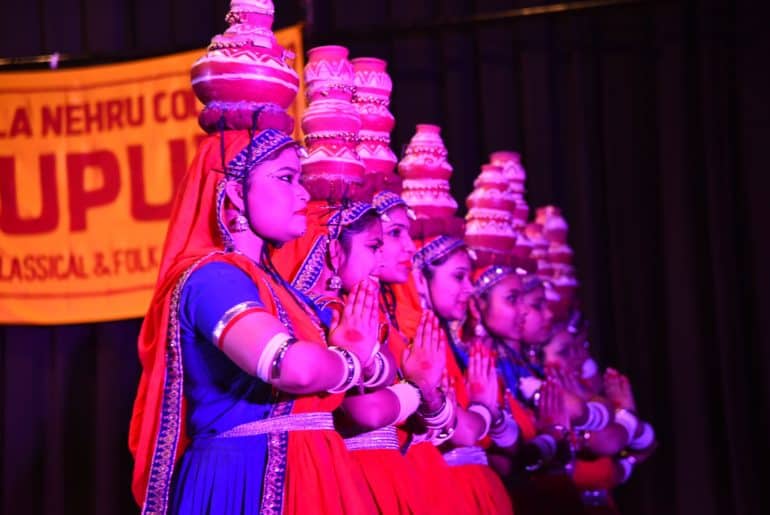Razor-sharp jargon, layers of argumentation, and excessive hand gestures – dive into the world of college-level parliamentary debating.
Dear Freshers, as the floodgates of Delhi University have been opened to you try to soak in the vibrant extracurriculars scene on campus – from expressive Dramsocs, socially-committed Enactus to the absolutely beautiful monstrosity that are Debsocs. Debating at the college-level is quite different from the public speaking or ‘debating’ our English teachers forced us into during our schooling years. Have you come across groups of debaters rapidly scribbling notes and speaking without a single pause? Folks who wear, “Don’t Hate, Just Debate” T-shirts. The over-caffeinated curious species who attract starry-eyed freshers into the magnetic pull of debating. Yes, those are your ‘college debaters’.
Introduction to PDs
College debating, especially in colleges of Delhi University, focuses on the Parliamentary Format. Unlike school, debating at the varsity-level is a group activity with one team of 2-3 speakers arguing for the motion, known as Side Government, and another team against the motion, known as Side Opposition. There are several niches of Parliamentary formats, the most common of which are the Asian Parliamentary Debate (APD) and the British Parliamentary Debate (BPD). Loosely based on the style of discussion followed in legislatures, the PD format of debating involves dynamic cross- argumentation and enhanced teamwork.
Debates are judged by a panel of Adjudicators who analyze the entire debates and decide which team wins. They then give their justification behind the verdict. Similar to debating, adjudicating is a competitive activity as well. In addition to this, Debating also involves Tabbing which is a technical activity involving softwares for
organising debate tournaments, and Equity, a grievance redressal and diversity mechanism.
The DU Debating Circuit
The community of Debating Societies of all colleges in the varsity which come together for practice mock debates and intercollege tournaments is known as the “Debating Circuit”. There are two prominent circuits for English and Hindi debating each. It includes legacy debsocs such as those of Kirori Mal College, Lady Shri Ram College for Women, and Sri Venkateswara College which have dominated the space for decades, and up-and-coming fledging debsocs with dynamic debaters and much-needed fresh blood.
The circuit is known for fostering some of the closest friendships and team-ups, but also generational society rivalries. Some of India’s and the World’s largest debate tournaments are hosted within the Delhi Uni Debate community such as the Mukerji Memorial Debate by St. Stephens which is one of India’s oldest running debates (they hosted the 75 th edition this April, 2023) and the Shri Ram Debating Festival, by Shri Ram College of Commerce, which is Asia’s largest week-long debate extravaganza.
The circuit initially brought about for promoting healthy dialogue and discourse and enhancing the communication skills and critical thinking of its members, unfortunately, has it’s fair share of criticisms. In recent times, legacy colleges with age-old society machinery and admin backing have been able to dominate tournaments that require significant financial resources and English-speaking ability. People from privileged backgrounds find it easier to make it big in the debating sphere, thus excluding minority speakers. Those with pre-established reputations and status in the circuit (known as “Dinos”) get an edge over those trying to break into this highly competitive field.
With greater awareness and callouts, the circuit is trying to revamp itself to be more accommodative and inclusive. Year after year, fresh blood, from colleges all across DU, irrespective of campus, find their way into debate rooms and beyond, thus carrying on the century-old legacy of this varsity’s greatest orators.
So, if you are an enthusiastic fresher, enamored by the pull of debating, or someone unsure about their prowess to enter this dynamic field, fear not and take that leap. After all, your voice matters, and no better space to find its resonance than Debating.
Image Credits: DU Beat Archive
Bhavya Nayak
[email protected]




 Debating in Delhi University is very different from debating at the school level. The main difference stems from the existence of Parliamentary Debating.
Debating in Delhi University is very different from debating at the school level. The main difference stems from the existence of Parliamentary Debating.